
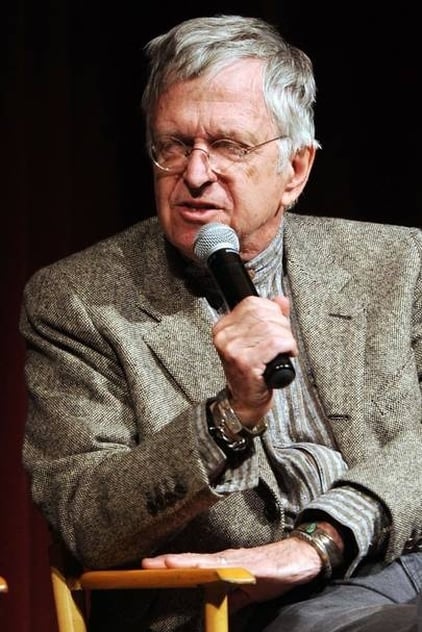
Jay Cocks
Born: January 12, 1944
From Wikipedia, the free encyclopedia.
Jay Cocks (born January 12, 1944) is a film critic and motion picture screenwriter.
He is a graduate of Kenyon College. He was a critic for Time, Newsweek, and Rolling Stone, among other magazines, before moving into film writing.
As a screenwriter, he worked on Martin Scorsese's The Age of Innocence and Gangs of New York -- a screenplay he started working on in 1976 -- as well as Kathryn Bigelow's Strange Days. Cocks also performed an uncredited rewrite of James Cameron's screenplay for Titanic.
Description above from the Wikipedia article Jay Cocks, licensed under CC-BY-SA, full list of contributors on Wikipedia.
Jay Cocks (born January 12, 1944) is a film critic and motion picture screenwriter.
He is a graduate of Kenyon College. He was a critic for Time, Newsweek, and Rolling Stone, among other magazines, before moving into film writing.
As a screenwriter, he worked on Martin Scorsese's The Age of Innocence and Gangs of New York -- a screenplay he started working on in 1976 -- as well as Kathryn Bigelow's Strange Days. Cocks also performed an uncredited rewrite of James Cameron's screenplay for Titanic.
Description above from the Wikipedia article Jay Cocks, licensed under CC-BY-SA, full list of contributors on Wikipedia.
Movies for Jay Cocks...
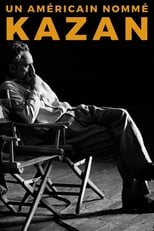
Title: An American Named Kazan
Character: Self
Released: March 10, 2019
Type: Movie
Elia Kazan represented the American dream. An immigrant who came without anything and who became the Prince of Hollywood and Broadway after World War II. Actor, theater director, filmmaker, writer, he is the founder of Actor’s Studio, a collaborator of Arthur Miller and Tennessee Williams, and a director who discovered Marlon Brando and James Dean.

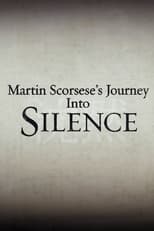
Title: Martin Scorsese's Journey Into Silence
Character: Self
Released: March 28, 2017
Type: Movie
A behind-the-scenes documentary on the making of Martin Scorsese's "Silence."

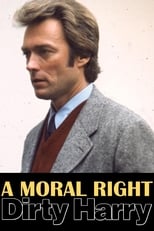
Title: A Moral Right: The Politics of Dirty Harry
Character: Self
Released: July 23, 2008
Type: Movie
Filmmakers, social scientists and authors take a provocative look at the moral, political and ethical themes of the Dirty Harry films.

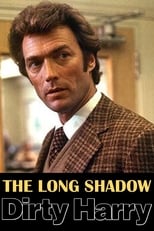
Title: The Long Shadow of Dirty Harry
Character: Self
Released: July 23, 2008
Type: Movie
An in-depth look at Dirty Harry (1971), featuring interviews with such film artists as Michael Madsen, 'Hal Holbrook', John Milius, 'Shane Black' and John Badham.

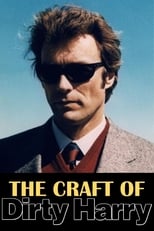
Title: The Craft of Dirty Harry
Character: Self
Released: June 3, 2008
Type: Movie
A look at the cinematographers, editors, musicians, production designers and other talent of the Dirty Harry series.

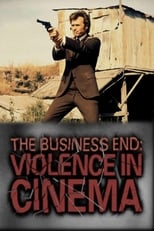
Title: The Business End: Violence in Cinema
Character: Self
Released: June 3, 2008
Type: Movie
An unflinching look at the ongoing debate on violence in movies and its effect on the audience.

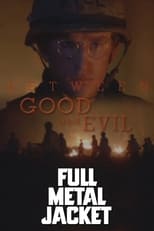
Title: Full Metal Jacket: Between Good and Evil
Character: Self
Released: January 1, 2007
Type: Movie
Follow Stanley Kubrick as he creates his savage and brilliant Vietnam film, hewing closely to the theme that dominated his creative life for four decades - the duality of human nature. Poised between good and evil, mankind was, in Kubrick's view, a complex creature equally capable of unspeakable savagery and heart-melting tenderness. Full Metal Jacket would make his case in vivid, blood-soaked Technicolor. Through interviews with Kubrick's collaborators and cast members, including Vincent D'Onofrio, Lee Ermey and Adam Baldwin, this documentary reveals how Kubrick's brilliant visual sense, astute knowledge of human nature, and unique perspective on the duality of man came together to make Full Metal Jacket an unforgettable cinematic experience, taking its place in his "war trilogy" alongside cinematic landmarks Fear and Desire and Paths of Glory.

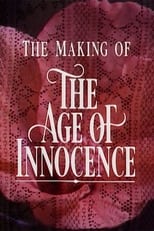
Title: Innocence and Experience: The Making of 'The Age of Innocence'
Character: Self
Released: September 1, 1993
Type: Movie
A documentary about the making of director Martin Scorsese's 1993 film adaptation of Edith Wharton's Pulitzer Prize-winning novel, The Age of Innocence. It features a conversation between Scorsese and the star of the film, Daniel Day Lewis, as well as rare behind-the-scenes footage.

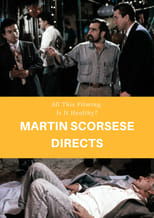
Title: Martin Scorsese Directs
Character: Self
Released: June 16, 1990
Type: Movie
Providing behind the scenes footage of the director on set with clips from his own films, Martin Scorsese Directs depicts to riveting effect the way Scorsese brings the written story to life on the big screen. Additional interviews with the likes of Joe Pesci, Harvey Keitel, Thelma Schoonmaker, the director’s own parents, and others build a perception of Scorsese that not everybody knows.

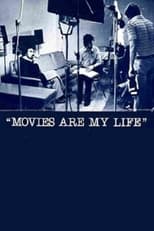
Title: Movies Are My Life
Character: Self
Released: October 6, 1978
Type: Movie
The very first full-length documentary on Scorsese offers an invaluable look at how he was perceived by his colleagues, and himself, in 1977. Catching Scorsese while he was in post-production on New York, New York and editing The Last Waltz, British filmmaker Peter Hayden gets the manically hyper Scorsese to comment on his youth, his relation to his lead characters, and most importantly, his approach to direction. The doc doesn’t quite move at the pace of Scorsese’s revved-up speed-talking, but it does offer some real insight into his productivity in the 1970s, thanks to an impressive array of talking heads. Included are Scorsese’s collaborators Jay Cocks, Mardik Martin, Brian De Palma, Steven Prince (who co-produced this doc), and his mentor John Cassavetes. Also the performers, who discuss his working methods in detail — Jodie Foster, Liza Minnelli, and, of course, Robert De Niro.


Title: Street Scenes 1970
Character: Self
Released: September 14, 1970
Type: Movie
In the late spring of 1970, nationwide protests against the war in Vietnam focused in the Wall Street area of New York City and ultimately in a major anti-war demonstration in Washington, D.C.. A group of New York University film students documented the demonstrations as they happened in both cities. Later, in New York, the massive amount of black and white and color 16mm footage was edited into this important record of the day-by-day events. The extended final scene, shot by Edward Summer in a hotel room in Washington, D.C., is a spontaneous conversation among Martin Scorsese, Harvey Keitel, Jay Cocks and Verna Bloom who, along with a large group of NYU students, found themselves frustrated and perplexed by the events and hopeful that the protests would result in change.
